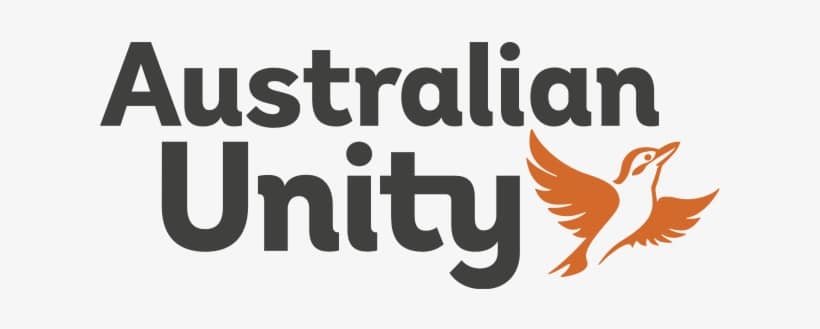Home > Health Insurance > Best Health Insurance
Best Health Insurance
Compare some of the best health insurance quotes from a trusted panel of insurers with Savvy.
Author
Savvy Editorial TeamFact checked



We’ve partnered with Compare Club to bring you a range of health insurance policies to help you compare them side by side.
With so many private health insurance policies available in Australia, there is no single best policy that will be right for everyone. Finding the best health insurance policy for you or your family is a matter of careful comparison and considering which is the closest fit to your needs, so it’s worth comparing a wide range of offers from leading insurers.
Savvy makes this process quick and simple by instantly providing you with a range of health insurance policies to compare side-by-side from a panel of trusted insurers. Just answer a few simple questions and you’ll have a range of policies to compare based on their cost, inclusions, benefits and more. Get started with a free quote through us today.
How do I find the best health insurance?
With health insurance, there is no such thing as ‘one size fits all’. Therefore, finding the best health insurance in Australia for you or your family is about matching up your personal insurance needs and preferences to the most appropriate policy you can afford.
Consider what type of insurance you need
There are several different types of health insurance in Australia, covering treatment and services delivered both in hospital, and out in the community. The options you have available to you include:
- hospital cover (which can cover medical costs while you are an in-patient in hospital)
- extras only cover (which can cover medical treatments provided out of a hospital setting)
- ambulance cover (which can provide cover if you need to be transported by road or air ambulance and is often included under hospital insurance policies)
- hospital and extras (a combination policy offering aspects of all of the above)
Think about who you are buying the insurance for and their needs
The next decision to make is whether you require health insurance as a single, a couple or a family. Naturally, this will depend on how many people need health insurance cover. Dependent children can be covered by their parent’s health insurance policy up to the age of 31 in certain cases with some insurers, although the cut-off age may vary between providers. Take the time to consider which option is most suitable for your situation.
Overseas Visitors Health Cover
Another type of insurance available is Overseas Visitors Health Cover. This type of health insurance is available for:
- Overseas students who are living in Australia to study
- Overseas workers temporarily living in Australia
- Travellers and visitors to Australia
- Anyone else who is living or travelling in Australia for an extended period not eligible to receive Medicare coverage for treatment
In many cases, having Overseas Visitors Heath Cover is a condition of being granted a residency visa, such as a working visa 482 or 485. This type of insurance offers broad cover for medical and hospital expenses and can cover medically-required hospital admissions and a portion of doctor’s fees if you visit a GP outside of a hospital setting. As such, comparing your options may help you find a policy more suited to your needs.
Look for insurance which best covers the areas you need the most
To find the best health insurance for you, it’s important to think about what your current health insurance needs are and consider what they may be in the future. By matching your current and future needs with the different levels of health cover available, you should be able to get an idea of the most appropriate type and level of insurance for your needs or those of your family.
Consider what is available in your region
Regional differences in Australia mean that some hospital cover policies are more appropriate than others in different circumstances. If you live in a large city or metropolitan area with a selection of private hospitals close by, having choice about where you’re treated may be an important consideration. However, if you live in a remote or regional area where there’s only one public hospital without any private beds available, having such a choice may not be such an important consideration. Gear your health insurance to what's available in your region when considering if it’s worth having private health insurance.
Look at the networks in your area
Many health insurers have a linked network of health care providers such as dentists, opticians, physios, chiropractors and hearing service providers. These networked providers can offer cheaper services to one or more health insurers, so it may be worth asking your favourite healthcare providers which insurers they are affiliated with. Alternatively, some insurers have detailed information on their websites telling you where their networked providers are in your local area.
Special offers for new customers
Healthy competition between insurance companies in Australia means that those looking for the best health insurance may have many special offers and discounts to compare. Such offers are designed to attract new customers and can include free weeks of insurance or wait restrictions eased. For example, an offer may state that all two-month waiting periods will be waived when hospital and extras cover is purchased together before a certain date.
Compare policies with Savvy
Once you’ve decided on the cover you need, it’s vital to compare policies side-by-side so you’re aware of the differences between individual insurers. By comparing your options through Savvy, you can consider offers from a panel of some of the leading companies in Australia for singles, couples, families and students. Through our simple online process, you could be well on your way to finding a policy which is appropriate for your health insurance needs. Get your free, no-obligation quotes here through Savvy today.
How do I compare health insurance policies to find the best one?
It’s a good idea to delve into the fine details of different insurance policies to make sure you know exactly what is on offer. The key comparison points to consider include:
Compare levels of cover
When comparing health insurance policies, it’s important to be aware of the different levels of cover available. For hospital cover, there are four levels:
- Basic
- Bronze
- Silver
- Gold
The Australian Government regulates what clinical categories must be included with each level of cover, to make it easier to compare apples with apples.
Cost
The more clinical categories covered in a policy, the higher the insurance policy is likely to cost. The same applies to extras cover; as you progress up the scale from the cheapest policy to the most expensive, the range of cover and annual claim limits will typically increase. As such, it’s important to look at policies which offer similar cover and how their price differs to help you avoid overpaying for your policy.
Excess and co-payment amounts
Many hospital insurance policies come with an excess amount, which is an amount you may be required to pay if you do have to be admitted to hospital. This amount can range from zero up to $1,500, with the permitted top excess limits being:
- $750 for singles
- $1,500 for couples and families
The higher the excess you choose, the less your policy may cost. For example, a silver hospital cover policy with a $750 excess will cost less than an identical silver policy with a $250 excess.
In addition to the excess payable, be aware that some hospital cover policies also require a co-payment amount for hospital admissions. This may be a set amount per day of your hospital stay and capped at a certain level. For example, you may have to pay $100 per day of your hospital admission capped at a total of $700 per stay per year.
Waiting periods
All health insurance policies come with waiting periods, either for those new to private health insurance or for those who wish to upgrade the level of cover they have. Waiting periods for hospital insurance range from two months up to 12 depending on the clinical category, while insurers can set their own periods for extras cover. Sometimes waiting periods can be waived by insurers who advertise special offers designed to attract new customers, which can offer great value if you’re looking for your first health insurance policy or want to upgrade to a higher level of coverage.
Annual claim limits
As well as comparing different levels of insurance cover, it’s also important to think about annual claim limits. These are the maximum benefits you can receive under a policy in one financial or calendar year. For example, a cheaper extras cover policy may allow you to claim up to $500 per year for major dental work, whereas a more expensive policy may allow you to claim up to $2,500. Consider the policy claim limits when you’re comparing the cost of two different hospital or extras policies.
Inclusions and exclusions
Comparing inclusions and exclusions is also crucial when choosing between health insurance policies. All insurers will have their own terms and conditions which describe what is and isn’t included in that particular policy. As such, it’s important to familiarise yourself with these carefully before making your final insurance decision.
Common exclusions for hospital cover are:
- Medical procedures not considered medically necessary (such as liposuction or breast reductions for cosmetic purposes)
- Cost of visiting a public hospital emergency department (which is covered by Medicare)
- GP or specialist visits outside of the hospital
- Any tests or scans conducted whilst you’re an outpatient, such as x-rays or CT scans
Common exclusions for extras cover are:
- Laser eye surgery
- Hypnotherapy
- Some alternative medicines and treatments
How else can I save money on my health insurance to get the best deal?
There are several things to look at to potentially save money when choosing a new health insurance policy, including:
- Don’t pay for what you don’t need: when comparing policies to find the best health insurance, it’s important to look at what the policy offers; don’t pay for inclusions that you know you won’t need. For example, a single man taking out a policy which includes pregnancy and obstetric cover could be considered a waste of money.
- Check what reductions and rebates you are entitled to: the Australian Government assists with the cost of your private health insurance by giving each insured person a rebate on the cost of their health cover. This rebate can either be claimed from your health insurer or as a once-per-year rebate on your tax return. Those looking for lower premiums can apply for a health insurance rebate from their insurance company when they buy their policy. In addition, you may be entitled to a discount based on your age if you are under the age of 30 or a cost reduction if you’re aged over 65 (subject to income conditions).
- Consider the timing of price rises: the cost of health insurance policies is typically reviewed and increased on April 1 each year, so it may be worth buying your policy earlier in the year to avoid the annual increases. However, the COVID-19 pandemic did alter this cycle somewhat, with several major insurers delaying their annual price rises from April 2022 to November 2022.
- Review your health cover often with Savvy: just like home loans, health insurance shouldn’t be purchased and forgotten about for years. It’s a good idea to compare private health insurance policies often (at least once every 12 months) to make sure you haven’t been left behind with an older policy when there are newer or better policies available. You can do this right here with Savvy.
Types of health insurance
This can help you pay for medical treatment if you need to be admitted to hospital. It can help cover the cost of your admission or accommodation and the fees charged by doctors, surgeons and anaesthetists. It can also cover other costs associated with a stay in a private hospital.
This helps cover the costs of health care treatments outside a hospital setting which aren’t covered by Medicare. This can include major and minor dental treatment, orthodontics, hearing aids, physiotherapy, glasses, contact lenses and podiatry (in most cases with annual limits).
This is a standard health insurance policy designed for a single person, rather than being tailored to cater to the needs of a couple or family. It may include hospital cover plus extras, or either of these types of insurance on their own, depending on what you're after for your health cover.
A family health insurance policy is designed for a family unit including dependent children who may reach up to 31 years of age with some insurers. It offers private health insurance suitable for the whole family and may include shared limits for all members included in your policy.
A health insurance policy aimed at seniors is designed to appeal to people who are in the second half of their life. These are often specific Silver Plus policies that offer the same cover as other health insurance policies, with the exception that pregnancy and childbirth cover may not be included.
Visitors who are in Australia on a temporary basis for travel, work or study may be able to take out Overseas Visitors Health Cover (OVHC). Many visas issued in Australia come with a requirement to take out this type of insurance, which covers visitors who may not be covered by Medicare.
Ambulance cover is generally available either packaged into your private health insurance or on its own as a separate policy or subscription. By having this protection, you could be covered for all eligible ambulance travel in Australia (subject to your insurer's terms and conditions).
The cheapest and most barebones form of private hospital insurance, this can include cover for rehab, in-hospital psychiatric services and palliative care. Having this policy will enable you to avoid paying the Medicare Levy Surcharge (MLS) and Lifetime Health Cover (LHC) loading.
Bronze hospital cover is a step up from basic insurance, including 18 further clinical categories such as ear, nose and throat, bone, joint and muscle, digestive system, joint reconstructions, gynaecology and chemotherapy, radiotherapy and immunotherapy for cancer.
Silver hospital cover is the second-most expensive type of policy and offers the second-most clinical categories. On top of what's offered by basic and bronze cover, it also includes heart and vascular system, lung and chest, blood, hearing device implantation and dental surgery.
The highest level of private hospital insurance available in Australia, gold policies can offer cover for pregnancy and birth, weight loss surgery, assisted reproductive services and insulin pumps on top of all the categories provided by silver, bronze and basic hospital insurance.
Why compare health insurance through Savvy?
100% free service
Our comparison tool doesn’t cost you a cent, allowing anyone to compare offers from trusted insurers around Australia for free.
Compare policies online in one place
You can consider the inclusions, premiums, benefits and other key factors easily with us, whether you’re at home or on the go.
Trusted insurers
Considering offers from trusted insurance providers can help give you peace of mind that you’re comparing high-quality policies.
Frequently asked questions about the best health insurance
A restricted health insurance fund is one which only offers health insurance to a particular group or industry of people, such as teachers, nurses or union members. They can offer very competitive policies to their permitted members, although it’s still important to compare their offerings with other insurers to make sure you really are getting a good deal.
The PHIS is important because it outlines what is, and isn’t, included in the health insurance policy. You should always read it carefully before buying or upgrading your health cover so you can be clear on what you can be covered for.
Yes – in Australia, health insurance is community-rated, which means it isn’t legal to discriminate against anyone or refuse them health cover based on their age, gender, or existing health conditions. As such, you can still compare competitive offers from a wide range of insurers as a senior.
The process of buying health insurance through Savvy is:
- Decide on the type of health insurance cover you want
- Fill out our simple online form to receive a range of quotes
- Compare the quotes provided and decide whether any offer the cover you’re after at a suitable price
- If you find a policy which is the best one for you, either buy it online yourself or opt to receive phone assistance with your purchase
- A specialist health insurance consultant will contact you to assist you or help you make a smooth swap from your existing policy
Helpful health insurance guides
Looking for health insurance to cover your condition or treatment?
Read one of our helpful guides on a range of different ailments and potential hospital or extras treatments to help you find out if they're covered.
Disclaimer:
Savvy is partnered with Compare Club Australia Pty Ltd (AFS representative number 001279036) of Alternative Media Pty Ltd (AFS License number 486326) to provide readers with a variety of health insurance policies to compare. Savvy earns a commission from Compare Club each time a customer buys a health insurance policy via our website. We don’t arrange for products to be purchased from these brands directly, as all purchases are conducted via Compare Club.
Savvy’s comparison service is provided by Compare Club. Compare Club compares selected products from a panel of trusted insurers and does not compare all products in the market.
Any advice presented above or on other pages is general in nature and doesn’t consider your personal or business objectives, needs or finances. It’s always important to consider whether advice is suitable for you before purchasing an insurance policy.
For any further information on the variety of insurers compared by Compare Club or how their business works, you can read their Financial Services Guide.










